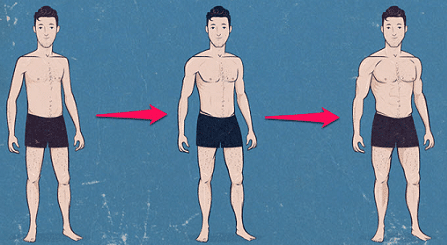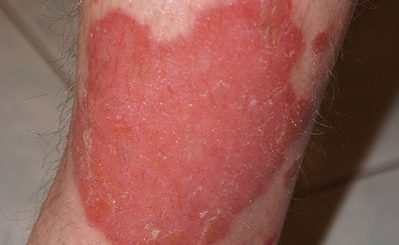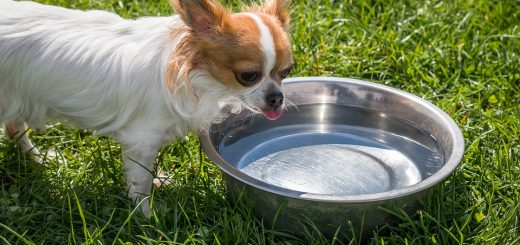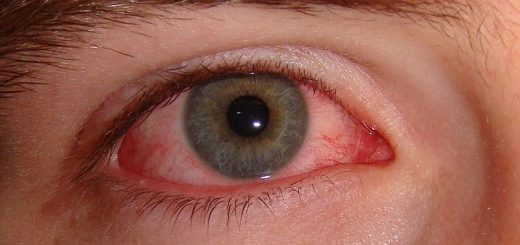13 Home Remedies for Acid Reflux in Babies
Acid reflux in babies can be surprisingly common. It’s very common for babies to burp and spit up. However, if frequent vomiting is an issue, it’s worth going to a doctor about. It could be due to Gastroesophageal Reflux Disease. Otherwise known as acid reflux.
Some of the symptoms of this affliction include frequent vomiting, severe cough, loss of appetite or trouble eating, excessive gas, or belly pain. Acid reflux happens in babies when food and acid in the stomach mix together and sometimes move back up the esophagus. In most cases, the infants who are afflicted with acid reflux are completely healthy. This is something that many babies will develop before the time they turn one. Often, after they lose the infantile stage, they will completely grow out of it and no longer have acid reflux as an issue.
If you suspect your child has acid reflux, definitely take them to go see a doctor immediately. The doctor has several tests that they can do in order to tell whether your child has acid reflux. One of these tasks is called the barium swallow. It’s where the child ingests an amount of chalky substance that is safe to swallow. The chalky substance will attach to the inside of the esophagus and allow doctors to get a more accurate picture of what’s going on.
Another common test is the pH test. Your infant will swallow a long tube that will stay in the esophagus for twenty-four hours. The tube will measure the amount of acid in the stomach and give reports back to the doctor. If you find out that your child has acid reflux, there are many things you can do. Treatment for this unless may be expensive, but there are many free home remedies that you can take advantage of to allow you to give your child some relief.
Home Remedies for Acid Reflux in Babies
-
More Frequent Feedings
Sometimes feeding your infant more frequently with smaller meals can actually really help them. Most mothers will feed their infants a few larger meals every day. Double this number of meals but cut the amount of milk that your infant gets in half. This should help regulate their digestive system and make everything a bit smoother.

Feeding a baby as above will also help to reduce gassiness
-
More Frequent Burpings
You should definitely get your baby to burp more frequently. Seeing as the issue is found in built-up gas, you will definitely want to get rid of as much gas as possible. Additionally, avoid feeding your infant before bedtime. Try burping your infant about every hour. You should also burp them after eating each time they have a meal.
-
Special Sleeping Positions
This is another helpful way you can reduce the odds of acid reflux occurring in your child. In order for your baby to avoid acid reflux, they should be on their sides or even belly in extreme cases. Make sure you take special precautions, though, because it can be easy for your baby to suffocate while sleeping on their bellies. Elevate its head and make sure that the baby is comfortable, but can breathe with ease.
-
Elevate your Baby
If you don’t feel comfortable with your baby not lying on its back, you can try elevating them while she sleeps. This is crucial for your baby to help with the digestive process. It absolutely ensures that the milk goes to the stomach and does not stay in the throat. Additionally, you can feed them upright. This will make sure that the milk goes down easier.
-
Avoid Dairy
Even though it might be hard, try giving up dairy products. Towards the end of the pregnancy and the beginning of the feeding process, you should eliminate dairy altogether. Dairy makes your natural milk thicker which can cause acid reflux issues in infants. However, this does not apply to you if you are not breastfeeding.
Additionally, make sure your baby is not allergic to wheat, gluten, nuts, or other common allergens. This could also be the source of your baby’s esophagus problems.
-
Loosen the Diaper
Something as simple as loosening your baby’s diaper or buying a bigger diaper can help alleviate any of the gastrointestinal pain. Because this occurs in the esophagus, you will want to make sure the stomach is as loose as possible.
Additionally, any part of the baby’s digestive tract should be allowed to be free. Restrictions can cause the digestion process to slow down. It will definitely result in an increased chance that your baby develops acid reflux if it doesn’t have it already. Loosening the diaper can, in some cases, completely remove any acid reflux issues your baby might have at the moment. It’s simple, and it’s worth a try.

Try using cloth diapers. Your baby may find them to be more comfortable.
-
Massage Therapy
They are actually certain types of massages is that you can give your baby in order to improve its digestive system. Massage will stimulate the vagus nerve. This nerve actually controls the regions of the digestive system.
In order to properly massage your infant, put the infant in lying position, on its back. Use warm baby oil and apply it to the baby’s stomach. Move your hand in a circular motion around the baby’s stomach for about five minutes. Then, reverse direction and rub again for another five minutes. Repeat this a few times a day, but not after your baby has just eaten.
-
Apple Cider Vinegar
Not many edible remedies are appropriate for infants. However, there are a few that are very effective. One of them is apple cider vinegar. Apple cider vinegar is great to use because it’s very basic. It helps balance the pH level of the acid found in your infant’s stomach, which can help with the digestive process. Only use a very small amount of vinegar, about one-quarter teaspoon of vinegar should be used for every glass of water. Mix the two together and then feed spoonfuls of that mixture to your baby throughout the day.
-
Chamomile
Not only can chamomile help mom relax, but it’s also an excellent natural remedy for babies to regulate their digestive systems with. The sedative properties can actually help regulate a baby’s digestive system issues. Coincidentally, this can also help mom de-stress.
In order to make a weak tea for your baby, put half a teaspoon of dried chamomile flowers into a cup of water. Heat up the water and allow the flowers to steep for about twelve minutes. Once they are done, fish the flowers out of the water. Feed it in small doses here baby throughout the day.
Pregnant or breastfeeding mothers should try to drink at least one cup of chamomile every day. This will improve the quality of the breast milk itself.
-
Coconut Oil
It feels like coconut oil just might be the cure for everything. Coconut oil is also safe for your baby and it can help your baby eliminate its acid reflux issues. The anti-inflammatory properties of oil will stop the intestines and esophagus from hurting. As oil is a natural lubricant, it can also help keep the digestive system open and flowing.
To maximize this remedy, use half of a teaspoon of extra-virgin coconut oil. Add this to a warm bottle of milk or a warm bottle of water that you plan on giving your baby.
Mothers who are pregnant or breastfeeding should also be taking small amounts of extra-virgin coconut oil every day. This will help boost their baby’s immunity as they reach toddlerhood.
-
Peppermint
Peppermint can also help calm a baby’s digestive system. It also has natural properties that will reduce inflammation and reduce the chances of indigestion. Mix a small amount of peppermint oil with a tablespoon of olive oil and massage it on the baby’s stomach. Do this twice daily.
Mothers who are pregnant or breastfeeding can also take peppermint in some form to ease their baby’s digestion. It’s incredibly easy to integrate into recipes, and even teas and coffees.
-
Fennel
Fennel can hope your baby’s digestive system by acting as a gentle laxative, it’s incredibly easy to give your baby. Mix two teaspoons of crushed tunnel seeds into a cup of hot water. Allow the hot water to steep for about fifteen minutes. When it’s done steeping, strain the water and give your baby small amounts throughout the day. You should notice changes in a matter days when it comes to your baby’s affliction.
-
Dietary Changes for Breastfeeding Mothers
The nursing mother’s diet is one of the most crucial things that can help get rid of the baby’s acid reflux. After all, the mother’s breast milk has the most influence on a baby’s health and development. Try not to eat anything too spicy and stay away from alcohol and cigarettes.
The most important thing, though, is to stay hydrated. Drink a lot of water throughout the day and try eating some yogurt. The probiotics found in yogurt can actually help improve your baby’s immune system. They can also aid in the digestion of breast milk.
In some cases, the baby doesn’t need anything changed about it. The mother can be the source of the baby’s acid reflux. If this is the case, it is important to figure it out and change your diet so your baby is no longer in pain.

Both babies and breastfeeding mothers need to have healthy diets if a baby to avoid acid reflux
Remember that some of these might not work. It is crucial that if one of these remedies is not helping your baby, you cease doing it and try another one to see if it will help. In many cases, more than one of these solutions will actually increase the odds of your baby feeling better. When it comes to dealing with acid reflux, you want your baby to feel as comfortable as possible. I urge you to try all of these remedies, and especially to stick with one that works the best. Good luck!








